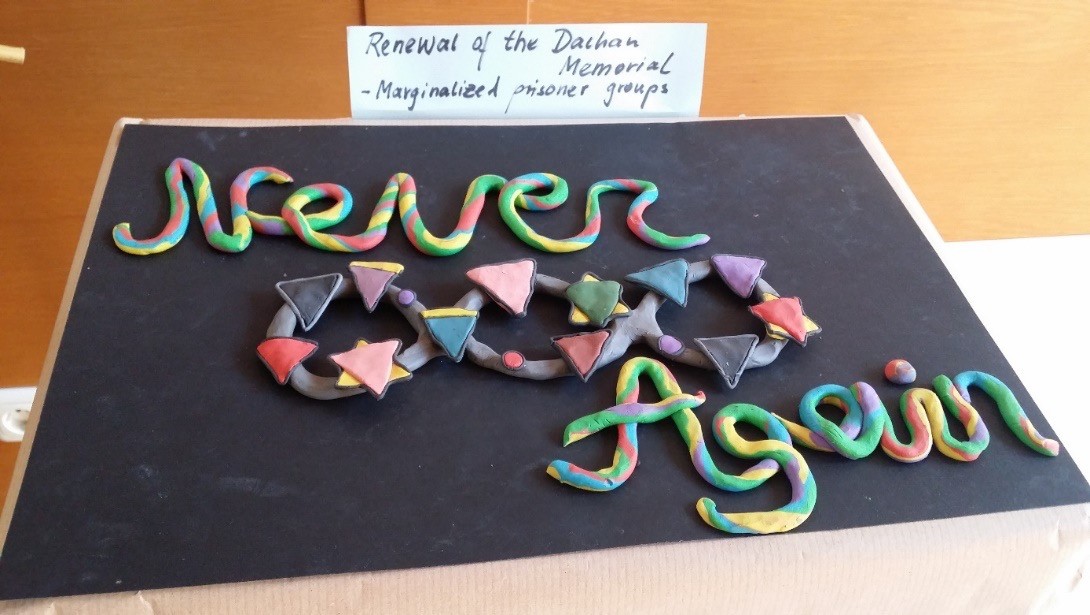Christina Ulbricht: Why bother talking about the holocaust today? – Asking adolescents
Biographical statement
I came into contact with the topic "national socialism and holocaust" on various occasions before my studies. However, I didn’t immerse myself in the topic any more than what was required for my history classes. Any questions that I had about it, I asked my grandparents who had experienced this time as young adults. At 23 years old, I first visited a concentration camp site. I still remember this day vividly. The images at the exhibition and the quotes of former prisoners struck me.
I am fascinated by how seriously, but at the same time openly, adolescents can discuss the topic of "national socialism and holocaust". I believe that having a close look at these discussions has great potential for achieving influential Holocaust Education.
The image below shows a potential way to process the topic. It is the creative product of adolescents who were processing their visit to a memorial site:

Private photograph, taken August 2015: Suggestion for a new design of a memorial panel in Dachau. Created by adolescents during the convention "Internationale Jugendbegegnung 2015" in Dachau.
Research interest
During my research I came across a variety of activities offered to adolescents. Some of them allowed adolescents to learn about the holocaust in a more voluntary way than others. In 1978, the Standing Conference of the Ministers of Education and Cultural Affairs published suggestions for discussing ‘opposition, national socialism and holocaust’ in German schools. All federal states implement these suggestions individually. Thus, it is safe to assume that no student in Germany graduates without having learned about this topic. In Bavaria it is expected that students visit at least one concentration camp site.
In my opinion, the young generation plays an important role for "Holocaust Education". To contribute to didactics that are sustainable and can be connected with, I want to find answers to the following questions:
- How do adolescents learn about the holocaust both inside and outside school?
- How do adolescents react to dramaturgical ways of processing the topic?
- How do adolescents react to concentration camp sites?
Goal
Taking into account my own experiences, I decided on employing the methods of the Reflective Grounded Theory. This allows adapting a perspective that is interdisciplinary (in the context of schools as well as in research areas) and is not specific to one of the institutions involved in communicating the topic (such as schools, memorial sites and youth camps). Keeping a broad horizon makes it possible to analyze the statements and actions of the examined adolescents according to a variety of criteria. Developing an understanding for what urges adolescents to deal with the topic outside of the classroom results in questioning whether elements of sustainable education can be achieved.

